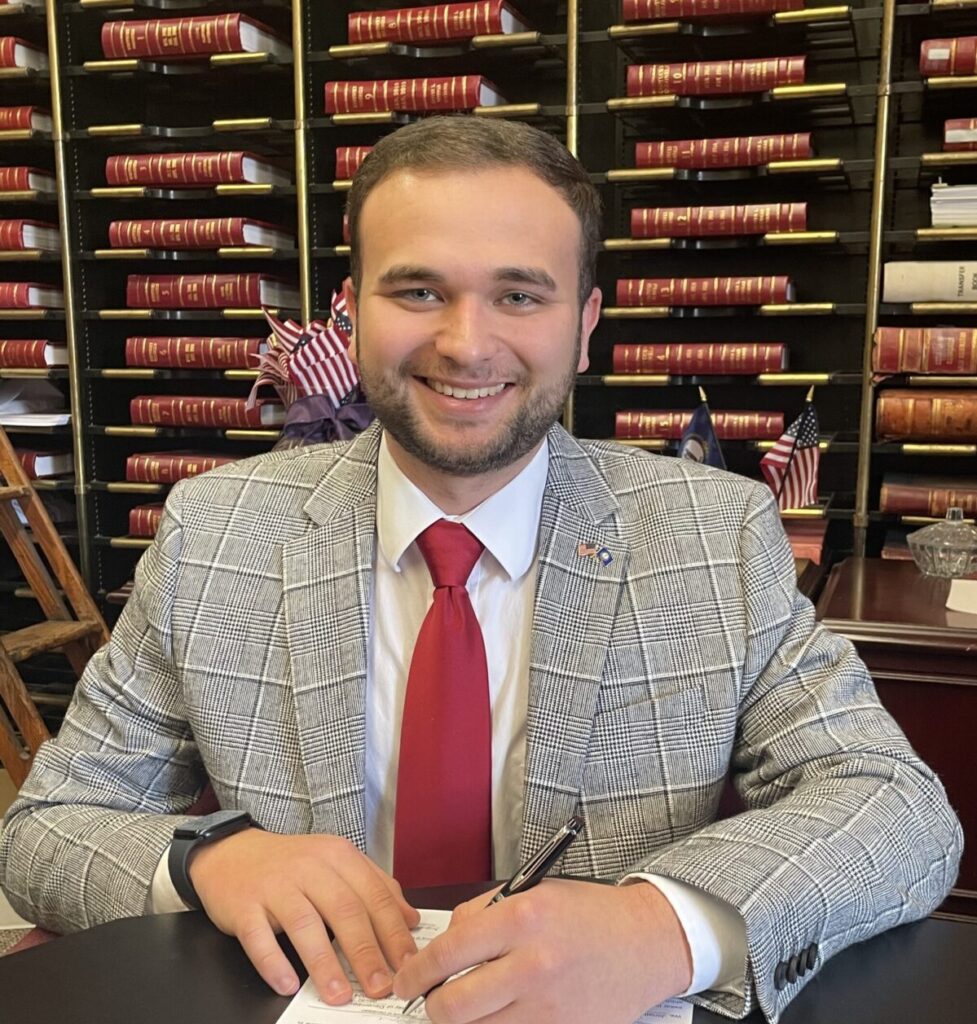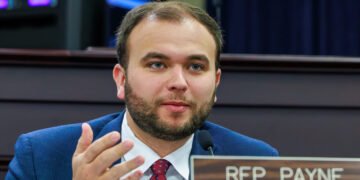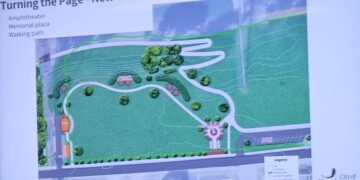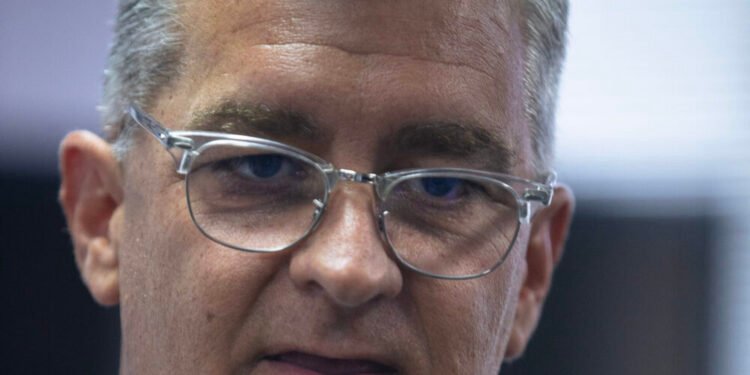The first week of the state General Assembly’s short session was filled with the ceremonial proceedings and appointments, but also the filings of numerous bills, the most-celebrated being HB 1, which would reduce the income tax from its current 4% to 3.5.
On Jan. 10, members of the Senate Appropriations and Revenue Committee voted 11-0 in favor it. It will now go to the full Senate for a vote, most likely on Feb. 4, the day the General Assembly reconvenes.
“I believe it will be ready to be on the floor the very first day we come back,” said Henderson state Sen. Robby Mills.
As part of a law passed in 2022, certain triggers must be met at the end of a fiscal year so that the half-percentage point reduction can occur. The triggers, according to a previous Kentucky Lantern article, are based on revenue going into the Budget Reserve Trust Fund, known as the “rainy day” fund, and revenue going into General Fund revenues and include:
- The rainy day fund balance must be at least 10% of what total General Fund receipts were in the fiscal year that just ended.
- Total General Fund receipts for the year just ended must have exceeded General Fund spending by at least the amount that it would cost to cut the income tax rate by one full percentage point.
Mills will get his chance to vote on the bill in February. Meanwhile, Henderson freshman state Rep. J.T. Payne has already passed his “aye” for it.

The state senator said, in regards to the state’s future budget, that legislators will need to keep an eye on the rising costs of Medicaid in light of a new president who might cut matching funds provided by the federal government. He said 1/3 of Kentucky’s residents are on Medicaid, an amount that Mills believes has been hastened by Gov. Andy Beshear’s expansion of the program via executive orders.
If federal dollars are cut, that could leave $2 or $3 billion that the state needs to come up with, Mills said. He said a Medicaid oversight committee has been created to keep watch on this issue.
Beyond the income tax measure, Payne said that some of the big issues discussed in the first week include addressing statewide housing shortages, improving the educational system and supplying enough energy for increasing needs. Mills also mentioned these issues during an interview with the Hendersonian.
Payne, also the assistant principal of the Career and Technical Education unit at Henderson County High School, said the education legislation will focus on reading literacy, math and vocational education. He said there’s been a lot of interest and discussion on what legislation in this regard will look like.
“My hope is that there’s not a lot of unfunded mandates” which often impede any progress hoped for with new laws, he said.
Of energy needs, Payne called it “kind of a crisis we’re looking at.”
Mills said both an expansion of technology and a continuation of manufacturing jobs in the state will require “tons” of energy. “We just don’t have it,” he said.
“If you don’t have energy, you’re not going to be able to have the manufacturing jobs we’re used to having in the state of Kentucky,” the state senator said.
As he has for years, Mills continues to support an emphasis on using fossil fuels to provide baseload generation of energy supply.
Mills also last summer co-chaired a state housing task force, and he said Kentucky is 209,000 housing units short of what it needs, which will dampen any effort for growth.
“If people don’t have a place to live, they won’t move to the state of Kentucky,” he said.
He said that there will probably be a couple bills filed addressing the housing shortage that will allow for builders to obtain financing from a pool of money and reduce construction regulations. He specified that the regulations legislators are looking to cut won’t deal with the quality of the building, but instead focus on those that are “unneeded” in attempts to lessen red tape.
Infrastructure will continue to be a top concern in this short session, and specifically for Hendersonians—and those who drive through the county—Mills said that finding funding for the final phase of the I-69 project is high on the list.
He said that securing a final federal grant in the $300 million range to finalize funding for Phase 3 of the I-69 project, which will be the bridge construction, is a focus for the session.
“We’re just waiting to get this final grant,” Mills said.
Mills is starting his first go-round as the Republican Majority Caucus chair, a post he won in November. As part of his duties, he organizes and runs the daily caucus meetings.
As one of the highest-ranking members of the Senate’s Republican supermajority, he has also said that the position will allow him to better position Henderson and the rest of his district for projects and increased funding. Mills’ position puts him as the highest ranking Hendersonian in the Senate since Bill Sullivan was the Democratic majority leader in the 1970s.
Payne, meanwhile, has been named to House committees for postsecondary education, agriculture and economic development, he said.
Payne filed his first bill during the legislature’s initial week. It would clean up statutes dealing with dual credit scholarships for high school students.
Both a scholarship for high school dual credit classes involving career and technical education subjects and a different scholarship specifically for postsecondary students are called the Work Ready Scholarship and are part of the same state statute, said Payne.
His bill would pull the high school version from that statute, rename it as CTE Dual Credit and insert it into the statute dealing with general education dual credit scholarships at the high school level, he said.




















